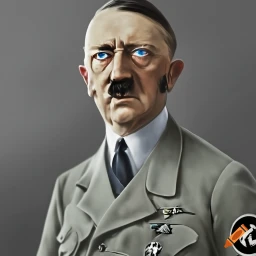Adolf Hitler and Nazi Germany ultimately lost the Second World War due to a combination of factors:
1. Allied Forces: The military alliance of the Allied forces, including the United States, the Soviet Union, the United Kingdom, and other countries, proved to be a formidable opponent for Nazi Germany. The combined strength, resources, and manpower of the Allies gradually overwhelmed the Axis powers.
2. Soviet Union’s Resistance: The Soviet Union played a crucial role in the defeat of Nazi Germany. The Soviet Red Army’s resilience, determination, and ability to withstand the German invasion during the Battle of Stalingrad and the subsequent Soviet counteroffensive turned the tide of the war in favor of the Allies.
3. Strategic Mistakes: Hitler made several strategic mistakes that contributed to Germany’s defeat. One significant error was the decision to invade the Soviet Union, which led to a costly and protracted war on the Eastern Front. Additionally, Hitler’s insistence on maintaining a two-front war by declaring war on the United States after the Japanese attack on Pearl Harbor further stretched Germany’s resources and military capabilities.
4. Allied Air Superiority: The Allies achieved air superiority over Nazi Germany, which severely hampered German military operations. The strategic bombing campaign by the Allies targeted German industrial centers, infrastructure, and transportation networks, weakening Germany’s ability to sustain its war effort.
5. Economic and Industrial Disadvantages: Despite initial successes, Germany faced economic and industrial challenges that hindered its ability to sustain a prolonged war. The Allies’ superior industrial capacity, resources, and ability to mobilize their economies for war production eventually outmatched Germany’s capabilities.
6. Internal Dissent and Resistance: Germany faced internal dissent and resistance from various groups, including resistance fighters, partisans, and civilians in occupied territories. These acts of resistance, coupled with the failure of the German population to fully support the war effort, further weakened Germany’s position.
7. Leadership and Strategic Errors: Hitler’s leadership style, which included micromanagement and a refusal to listen to his military advisors, led to strategic errors and missed opportunities. Hitler’s obsession with ideological goals, such as the extermination of Jews and other groups, diverted resources and attention away from military objectives.
It is important to note that the reasons for Germany’s defeat in World War II are complex and multifaceted. The factors mentioned above, along with other geopolitical, military, and social factors, all played a role in the ultimate defeat of Nazi Germany.
